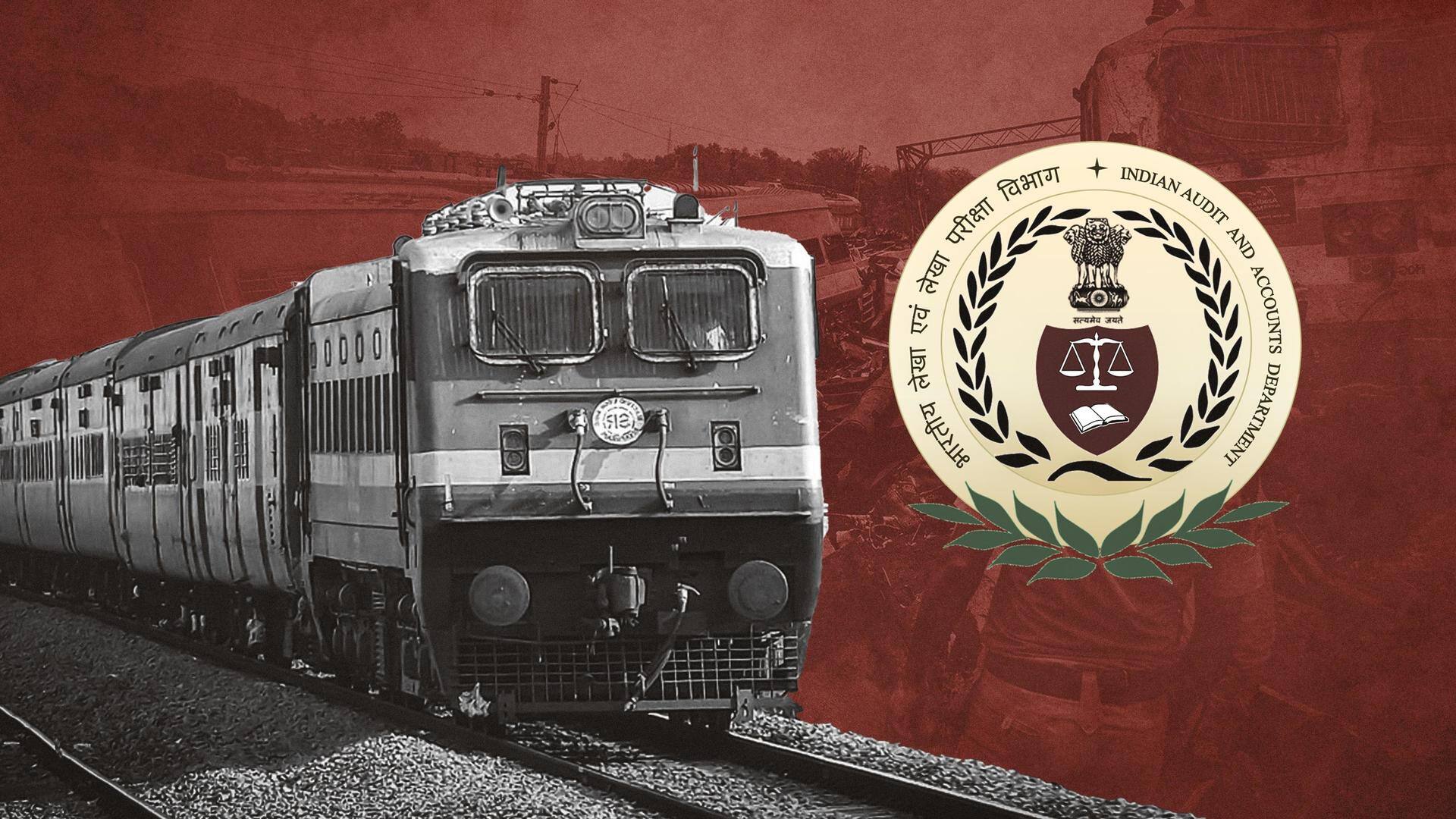
Months before Odisha tragedy, CAG report highlighted rail safety flaws
What's the story
While the Centre is yet to fix the accountability for the Odisha triple train accident, a 2022 audit report of the Indian Railways of the Comptroller and Auditor General of India (CAG) has surfaced, which flagged several serious rail safety lapses.
It also highlighted severe shortfalls in inspections, failure to submit or accept inquiry reports, and non-utilization of funds on priority tasks, among others.
Context
Why does this story matter?
The report came to the fore as the preliminary investigation into the Odisha train accident hinted at "negligence" and "signaling error."
The horrific accident killed nearly 300 people and injured over 900 people on Friday.
Reportedly, the Chennai-bound Coromandel Express first collided with a stationary goods train, after which a Howrah-bound train operating on a different track also derailed.
Details
CAG questioned Railways Ministry over preventing derailments
The CAG report had questioned the lack of measures by the Railways Ministry to prevent derailments and collisions, NDTV reported.
It also reportedly flagged severe flaws in inspections, probes, utilization of funds, track renewal, and staffing of safety operations.
"There were shortfalls ranging from 30-100% in inspections by Track Recording Cars required to assess geometrical and structural conditions of railway tracks," it said.
Track management
Inadequacies found in 'Track Management System'
The audit reported had also referred to inadequacies in the "Track Management System", which has received a lot of attention since the Odisha train tragedy.
"Track Management System (TMS) is a web-based application for online monitoring of track maintenance activities. The in-built monitoring mechanism of the TMS portal was, however, not found to be operational," it noted.
Attributions
Highest derailments attributed to Engineering Department between 2017-21
According to the report, whi h was presented to the Parliament in September last year, the Engineering Department was responsible for 422 train derailments between April 2017 and March 2021.
Maintenance of tracks (171 occurrences) and deviation of track parameters beyond permissible limits (156 cases) were the other major contributing factors to such derailments.
Bad driving/overspeeding was also a main factor, it said.
Operational causes
Operating failures responsible for 275 accidents, revealed CAG
The Operating Department was responsible for 275 accidents, per the CAG.
Incorrect point setup and other faults in shunting operations accounted for 84% of them.
It added the majority of the derailments were allegedly caused by simultaneous failures of each of these five factors: rules and joint procedure orders (JPOs), staff training/counseling, operations supervision, coordination and communication between different departments, and scheduled inspections.
Information
Shoddy inquiries in accidents
According to CAG, the "inquiry reports" were not provided to the authorities within the allotted time frame in 63% of cases, while accepting authorities delayed receiving the reports in 49% of the instances.
Funds
Non-utilization of funds major concern
Overall expenditure on priority tasks from the Rashtriya Rail Sanraksha Kosh (RRSK), a reserve fund that got a corpus of Rs. 1 lakh crore over five years beginning in 2017-18, showed a downward trend, according to the auditing body.
It said that funding for track renewal projects had been reduced, and funds that had previously been provided had not been adequately used.
Timings
Lack of track renewals leads to 26% of accidents
The CAG report said that out of 1,127 derailments during 2017-21, 289 (26%) were linked to track renewals.
Only 2,059 (70%) of the 2,908 manned level crossings (9%) slated for elimination between 2018-21 were removed, it said.
"Required steps were not taken for adequate staffing in the safety category, which can impact the quality of maintenance," the report concluded.